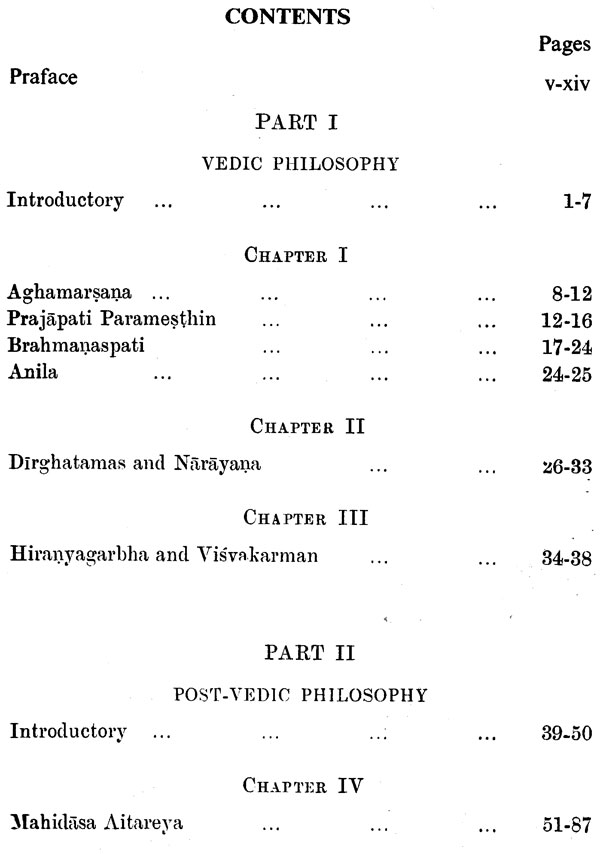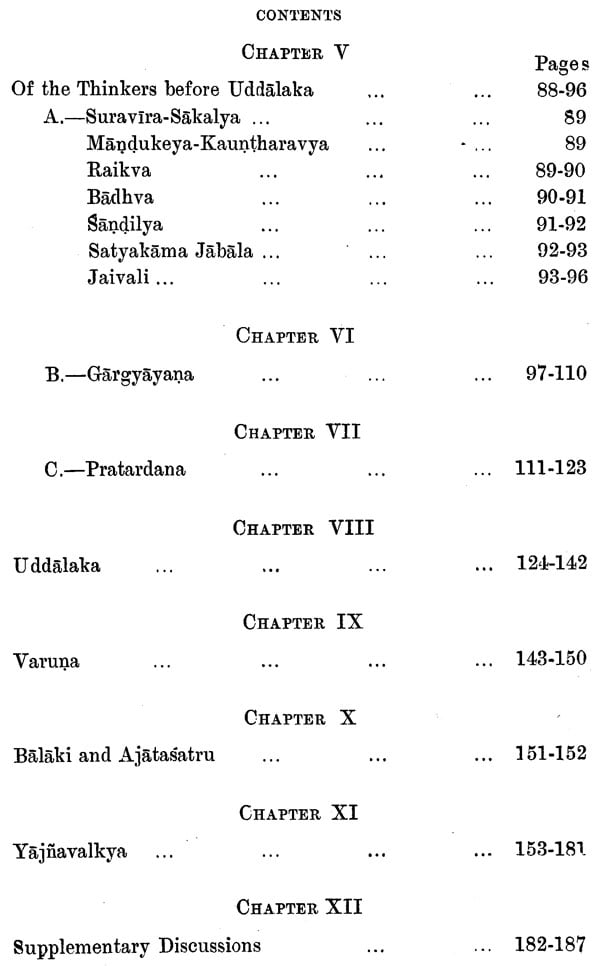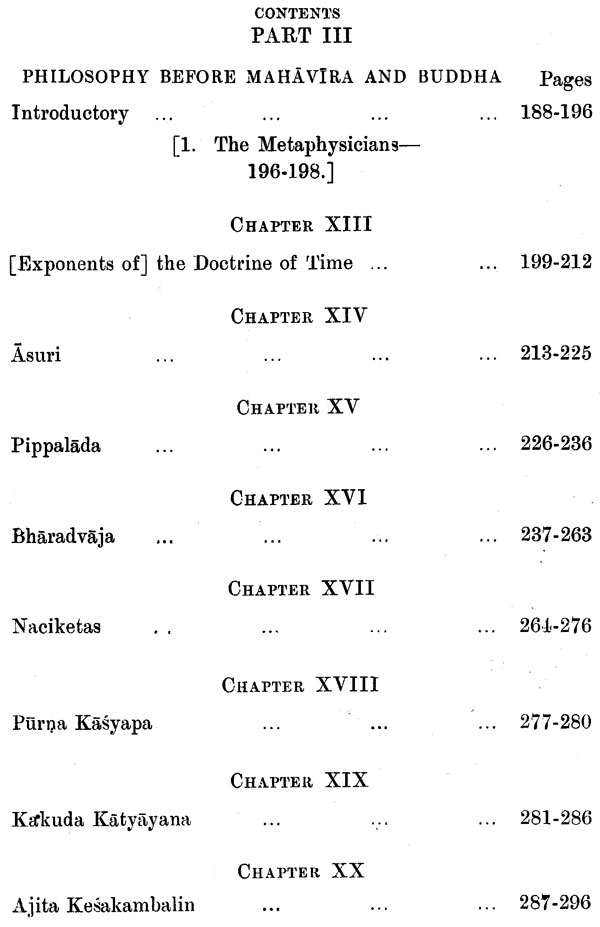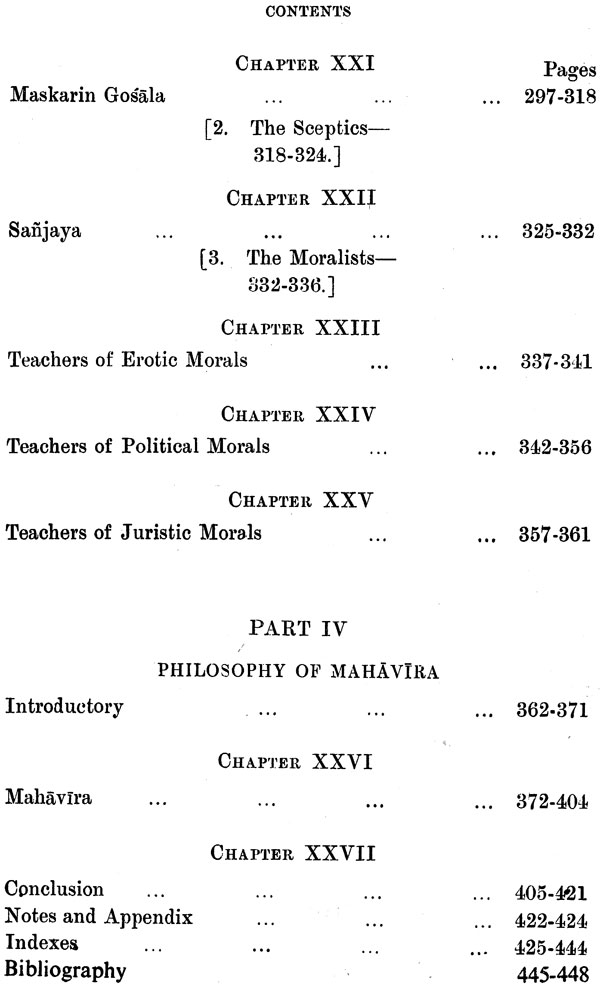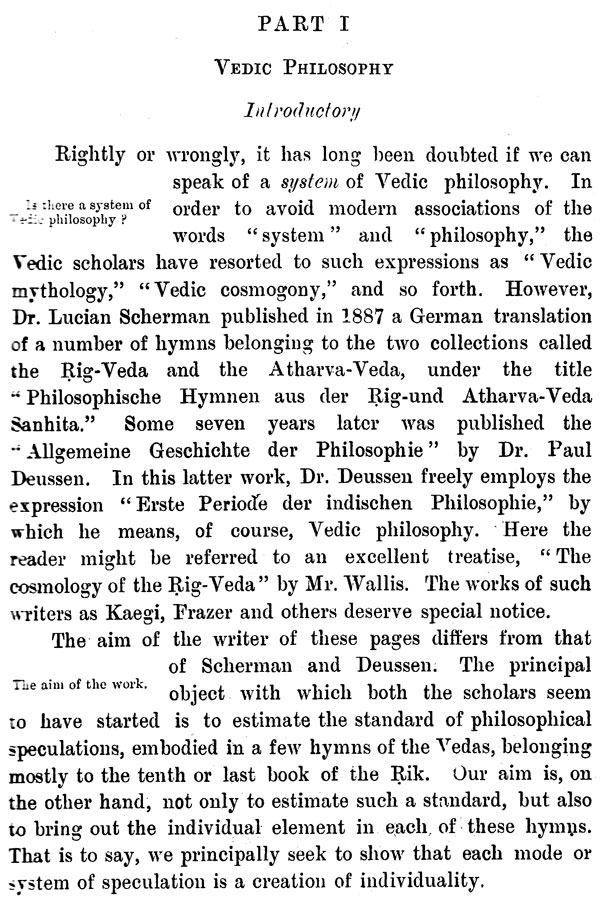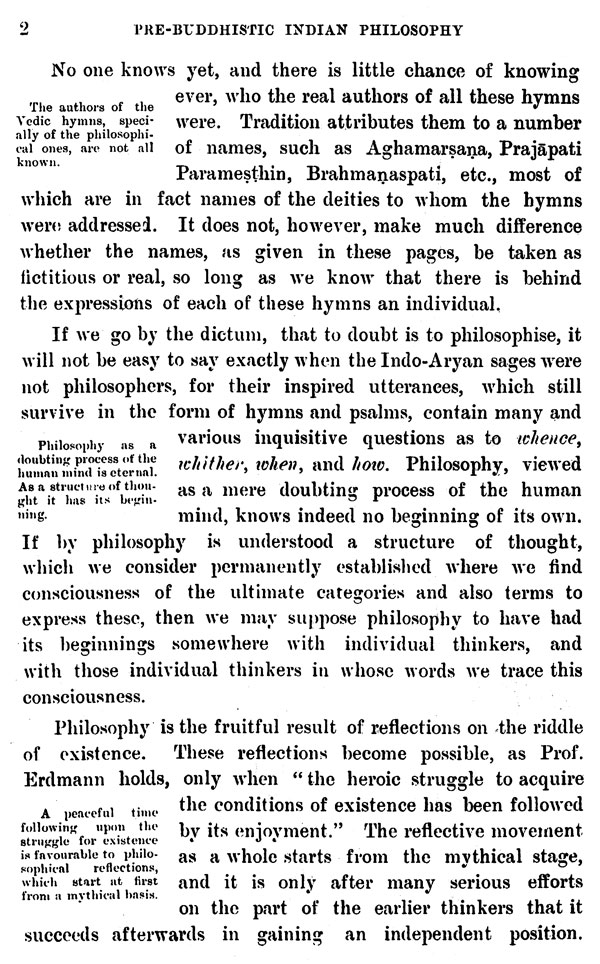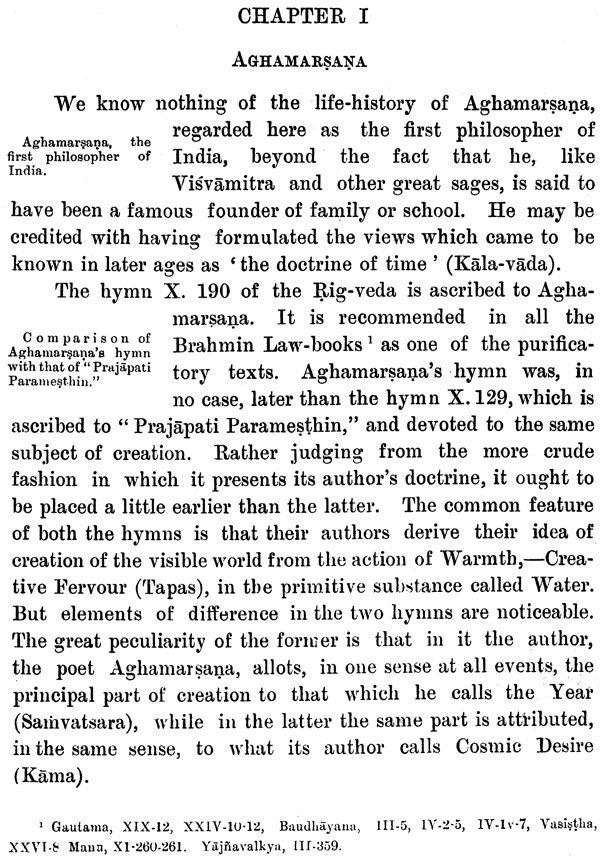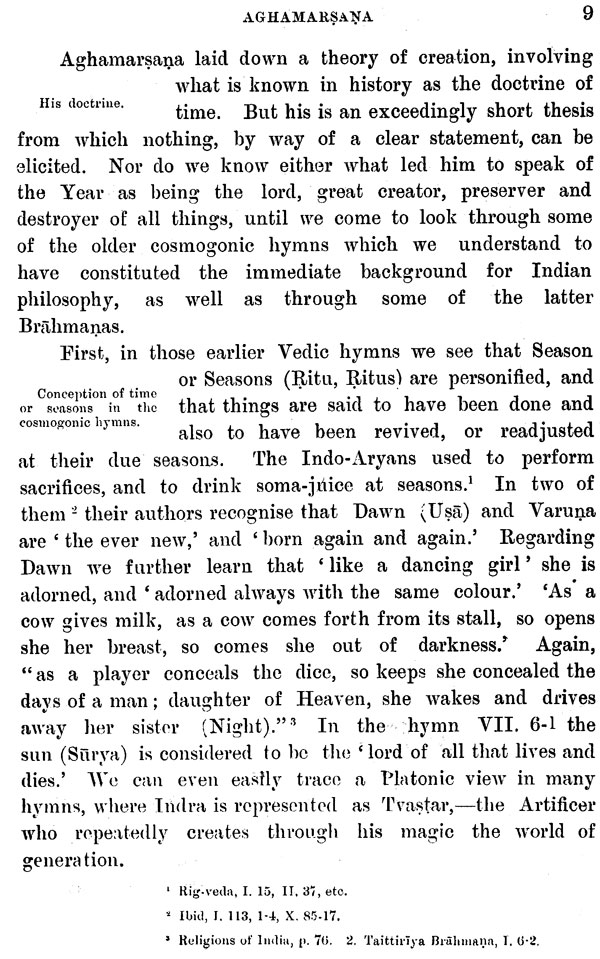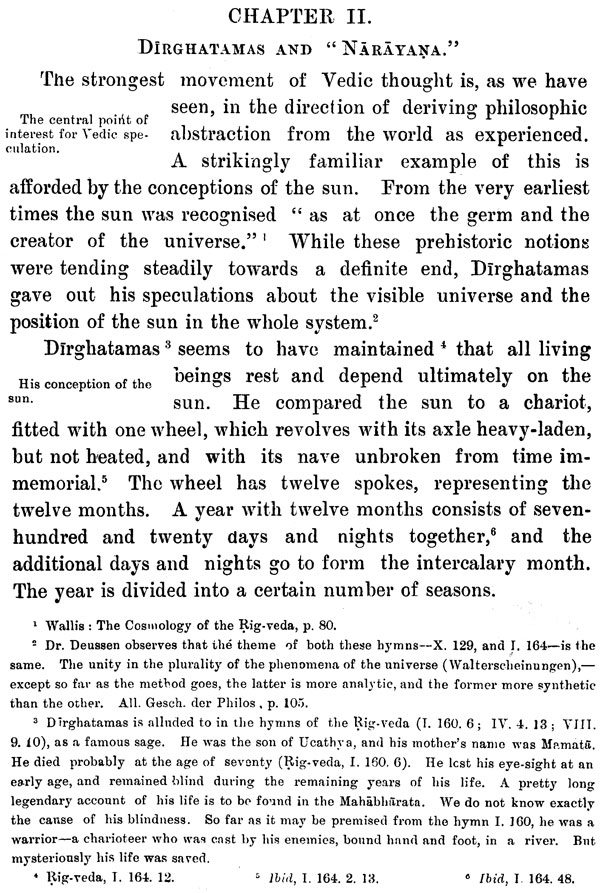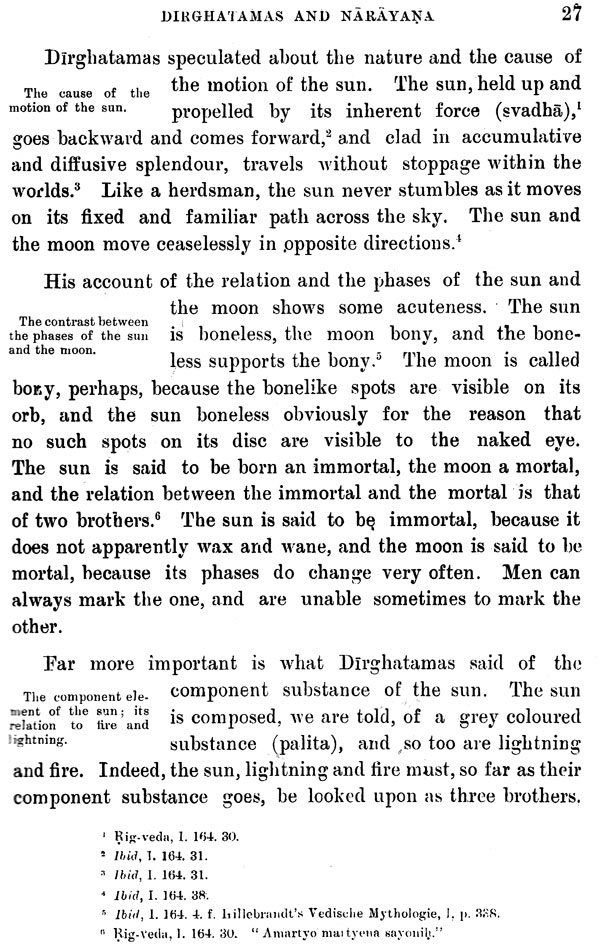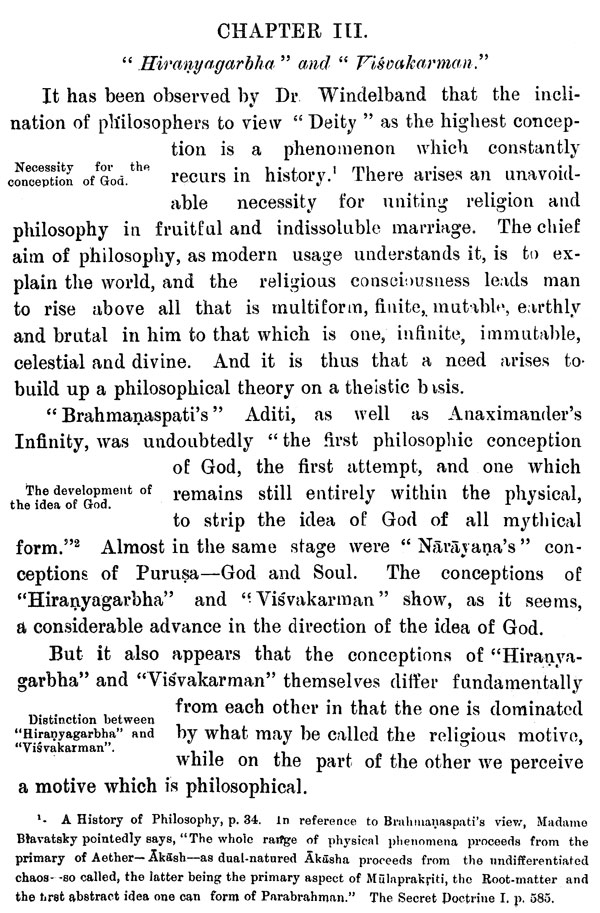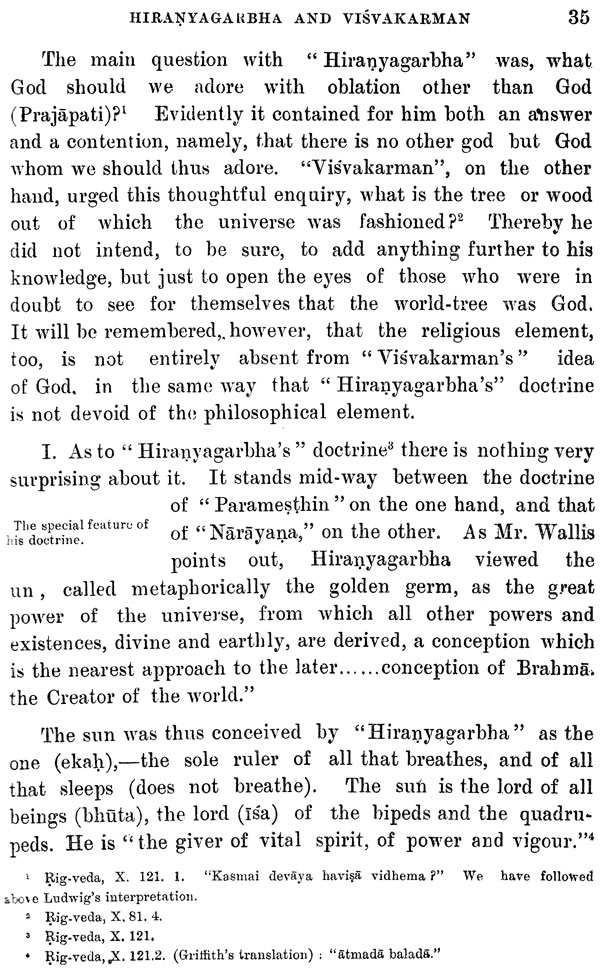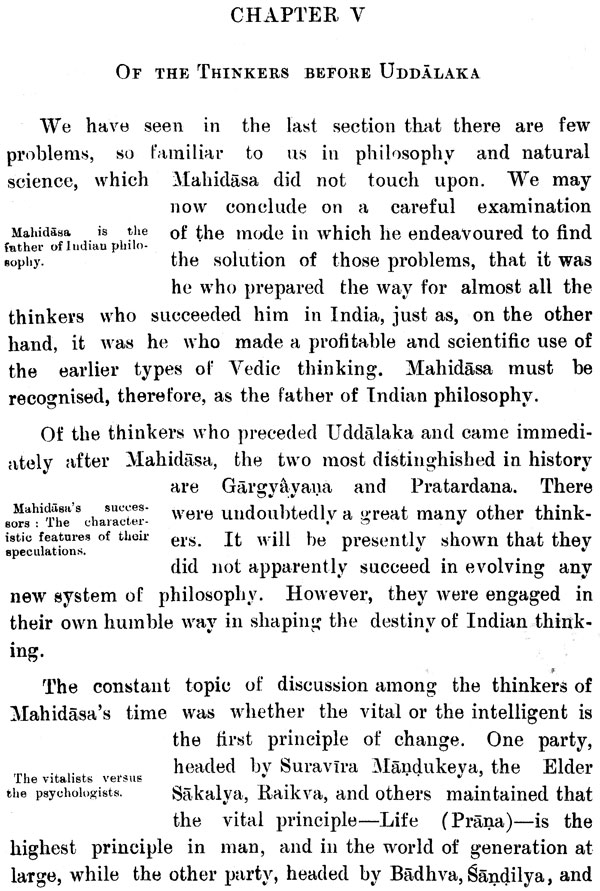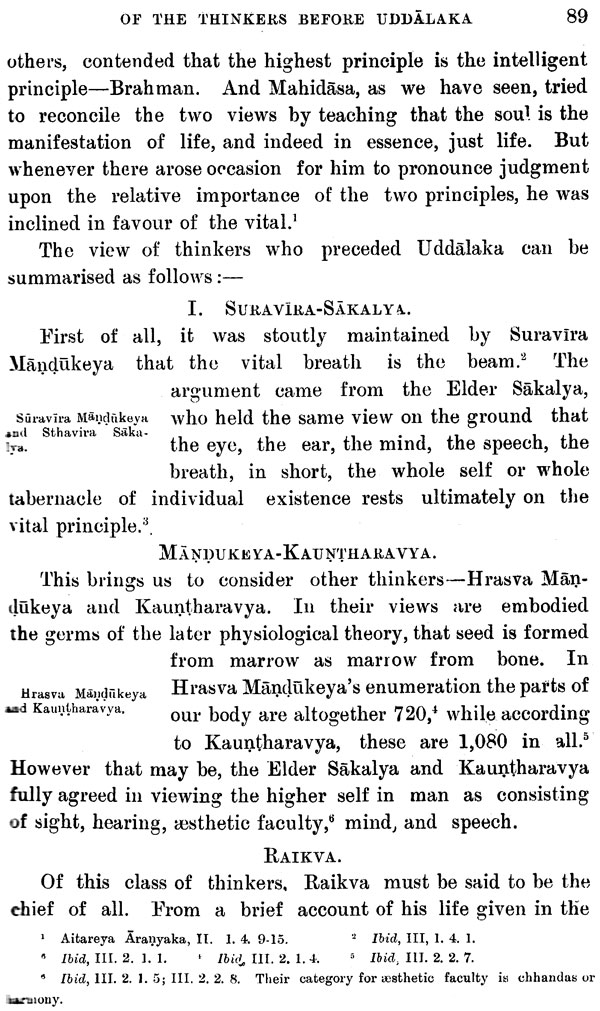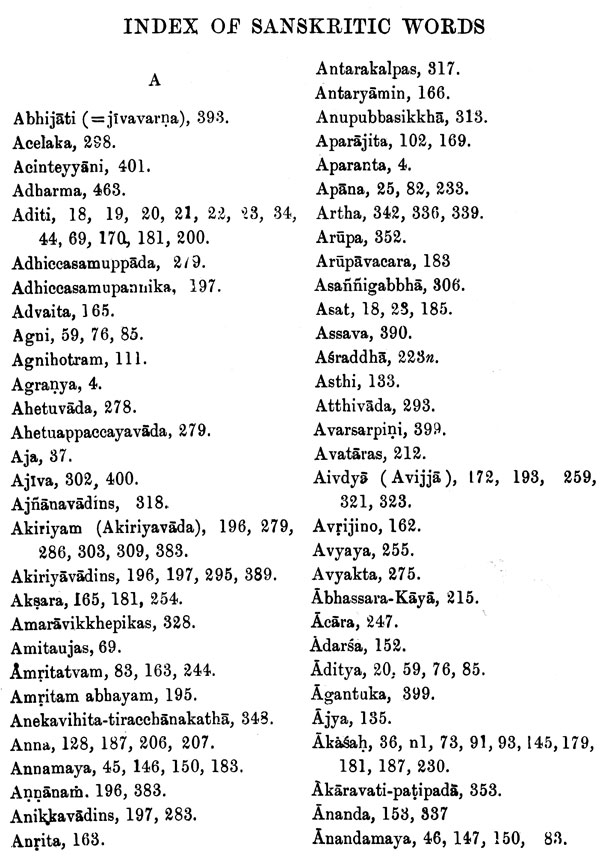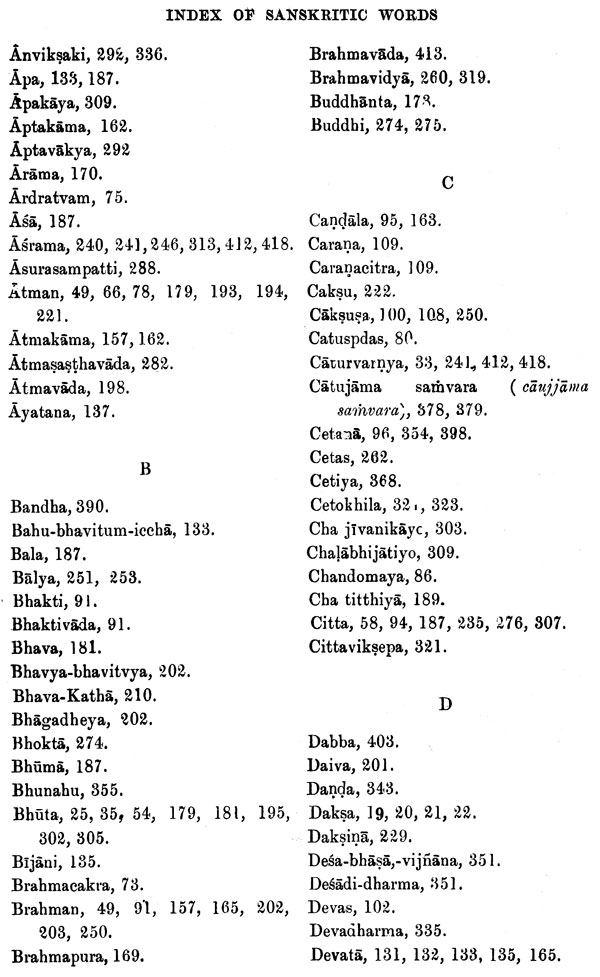
A History of Pre-Buddhistic Indian Philosophy
Book Specification
| Item Code: | NAQ877 |
| Author: | Benimadhab Barua |
| Publisher: | Motilal Banarsidass Publishers Pvt. Ltd. |
| Language: | English |
| Edition: | 2016 |
| ISBN: | 9788120807969 |
| Pages: | 472 |
| Cover: | HARDCOVER |
| Other Details | 10.00 X 6.50 inch |
| Weight | 880 gm |
Book Description
The present work is designed to survey the evolution of philosophical thought in the Vedic and post-Vedic periods preceding the rise of Jainism and Buddhism. The author has traced up the development of early Indian philosophy on divergent lines on the basis of the Rgveda, Atharvaveda, Aranyakas, the older Upanisads and the allied literatrue.
The work is divided into four parts: each part is divided into several chapters. Part I deals with Vedic philosophy; Part II with post-Vedic philosophy; Part III with the philosophy of transitional period before Mahavira and Buddha and Part IV with the philosophy of Mahavira.
The author has exploited the original Indian sources and in defiance of several scholiasts has proved that the process of early Indian thought evolution is neither unscientific nor unsystematic.
The work throws abundant light upon a very obscure and highly important period of Indian thought. It is also a very useful study for ascertaining the immediate background of Buddhistic philosophy.
The present work is substantially my thesis " Indian Philosophy-its origin and growth from the Vedas to the Buddha," submitted in 1917 to the University of London and approved in the same year for the D. Lit. degree. I can no longer regard it as the same Doctorate thesis, since it has been revised, altered and enlarged, though slightly, in the light of subsequent research. Consequently the title of the original thesis has been done away with and replaced by the present title " A History of Pre-Buddhistic Indian Philosophy." The Supplementary Discussions in Chapter XII, the Post-Script in Chapter XXI and the whole of the concluding chapter are later additions. None the less, the original thesis remains almost intact in this work in that the changes made therein are immaterial, the general arrangement of its chapters and sections as well as its main conclusions having suffered no violent alteration.
It would no doubt have been of some advantage to me, a novice that I am, to get the thesis printed and published in its approved form with the stamp of the University of London upon it. I could not really have made up my mind to publish the thesis in its present form, with certain additions and alterations specified above, but for the precious suggestions from Professor T. W. Rhys Davids and the kind encouragement of the Hon’ble Justice Sir Asutosh Mookerjee, the President of the Council of Post-Graduate Teaching in Arts and the present Vice-Chancellor of the Calcutta; University. I have nevertheless the satisfaction of seeing the work now published with the stamp of my former Alma Mater, the University of Calcutta, and it has been to me not a little matter of pride that I found myself on my return from England in the midst of a band of arduous and talented researcher's in the vast field of ancient Indian literature, history and culture, brought together from different parts of the world to advance the cause of learning under the guidance of so eminent a leader, scholar and educationist as Sir Asutosh. Nothing indeed could give me greater satisfaction than the relief I had felt on being back in the midst of my community which has not regarded me as an outcast, as well as my University whirls has not failed to afford me facilities for work ; for, however rebellious in spirit one may be in matters of one's social and religious views, and however insignificant may be one's attainments abroad, nothing can be more painful and disappointing, I think, to a man than to find himself a stranger at home. What this strangeness of situation means to an Indian returning home from foreign sojourn and to an Indian student of ancient Indian literature, history and culture returning to the institutions of his country can better be imagined than told. Just fancy what chagrin a sensible man is apt to feel when after long absence he returns home only to find that his parents, brothers, sisters and others whom he regards as very dear and near to him, are all reluctant, because of the fear of society, to receive him back freely in their midst, or how depressing is the atmosphere to a student who finds, in spite of his earnestness, that in the educational institutions of his country the subjects generally neglected and undervalued are precisely those which are productive and really matter most. Happily the times are being changed.
While I leave the book to be judged for what it is worth, I must say that it is not a dissertation on the history of Buddhism or of Buddhist philosophy, the subject being reserved' for a separate work. The investigation in it has been closed at a point where the philosophical thoughts and scientific speculations of ancient India reached a stage of development, advanced enough to provide for a necessary antecedent condition of the rise of a powerful movement of thought, wholly Indian in origin and character, seeking to evolve a system of religious philosophy with the theory of causal genesis as its mainstay or fundamental and central idea. But the genetic connection of this work with Buddhism, is twofold: (1) that it embodies the results of an investigation which was at first undertaken, at the instance of the late Rev. Gunalankara Mahathera of Chittagong, to ascertain the immediate historical background of Buddhist thought ; and (2) that the original data for the conception of a chronology of early Indian philosophy were derived from the Buddhist canon. It was mainly by the light of the evidence of the Tripitaka that I came to perceive three great synthetic divisions in the development of earlier thought. It was again a close comparative study of the first volume of the Digha Nikaya, published by the Pali Text Society, and the six Upanisads, edited and translated by Pandit Sitanath Tattva-bhusan, that first suggested to me the prospect of a very fruitful study of Buddhism, keeping it in constant relation to the earlier and contemporary Indian thoughts in the midst of which it arose and without reference to which its true historical significance and value could not be properly comprehended, even if there were a hundred Buddhist commentators and exegetists like Buddhaghosa to write powerful expositions thereon. Further, I chanced upon a number of parallel passages in the Buddhist Pitakas, the Jaina Angas and the Mahabharata, having bearing upon many daring philosophical ideas now found embodied in the older Upnisads, the Aranyakas and a few selected later hymns of the Big and Atharvavedasamhita.
**Contents and Sample Pages**
